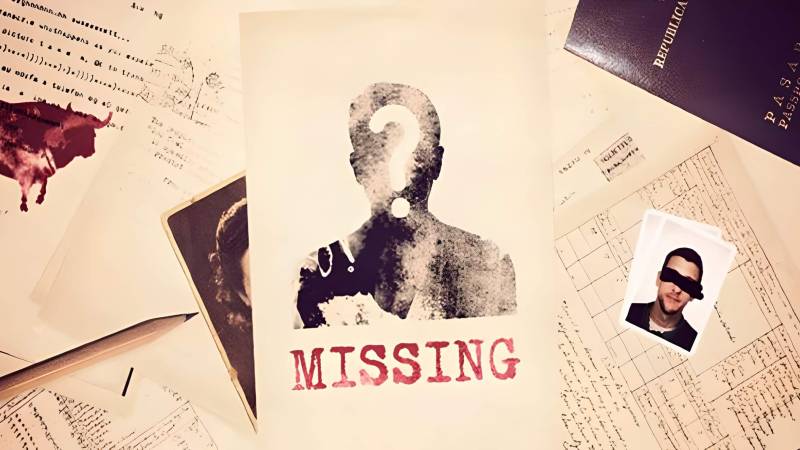
For several months, a shift has been observed in the state's policies towards Balochistan – specifically the youth and students - with the emergence of alleged 'fake encounters' and 'custodial killings'.
At the moment, there is a protest underway in Gwadar. Rights groups have condemned the extrajudicial killings in the province.
The latest episode emerged on November 23, when the bodies of four Baloch youth were shifted to the civil hospital in Turbat by security forces. It was reportedly claimed that the unidentified bodies belonged to "Baloch militants" who had been killed in an encounter on Pasni road.
Later the same day, one of the bodies was identified as Balach Mola Bakhsh.
It emerged that he had been forcibly disappeared from his home on the night of October 29, 2023, from Absor, near Turbat.
He was then said to have been handed over to the civil Counter-Terrorism Department (CTD), who charged him with carrying five kilogrammes of explosives.
He was subsequently presented before a judicial magistrate in Turbat, who granted ten days of physical remand.
It seems he was granted release only to die in an 'encounter' surrounded by bodies of other 'Baloch militants'.
The emerging trend sees the alleged involvement of the Counter-Terrorism Department (CTD). It also signals a shift from the 'kill and dump policy'
Bakhsh's case has raised suspicions about the identities of the remaining three unidentified bodies and the truth about how they go there.
That missing persons in Balochistan have been killed in staged encounters is not new. Just days prior, on November 19, three people were reportedly killed in a suspected roadside bomb attack in the Balgatar area of Kech district.
When the bodies were identified, it soon emerged that they were, in fact, missing persons who were arrested-cum-abducted from their homes in the Balgatar area of Balochistan on August 22, 2023.
Soon after, a picture went viral which allegedly showed that the hands of the three bodies were tied with ropes, suggesting that neither were they travellers nor were they involved in subterfuge. Rather, they were victims.
Their families also rejected the claims that the men were targeted by militants. Instead, they alleged the security forces were responsible for these deaths.
Moreover, they claimed that security forces allegedly took another four members of their family into custody the same night.
These are but some of the accounts.
The emerging trend sees the alleged involvement of the Counter-Terrorism Department (CTD). It also signals a shift from the 'kill and dump policy', where missing persons would mysteriously turn up dead by the roadside, into 'fake encounters'.
Local political parties, bar associations and rights groups have condemned these fake encounters and have urged the superior judiciary to take notice of the grave human rights violations in Balochistan.
HRCP strongly condemns the practice of extrajudicial killings by law enforcement and security agencies, which continue to be reported from Balochistan, particularly in Kech and its surrounding areas. Extrajudicial executions are not justified in any circumstances whatsoever,…
— Human Rights Commission of Pakistan (@HRCP87) November 24, 2023
There has been no progress in cases of missing persons, even though Caretaker Prime Minister Anwaar-ul-Haq Kakar tacitly accepted figures for missing persons in Balochistan given by a United Nations body. The judiciary has also shown little interest in these cases.
It seems powers in Balochistan have been given a free hand to do anything and to whatever extent they want, while every other institution, including the courts, appear hapless before them. Such acts not only challenge the status quo of the legal system of the country but also create a strong sense of alienation amongst the Baloch masses – especially students.
These acts are unconstitutional from the state's perspective and only serve to further spur militancy
The Turbat Bar Association, while strongly condemning the killing of Balach Mola Bakhsh and accusing missing persons of being militants post-mortem, staged a day-long boycott of local courts on November 24.
The association confirmed that an FIR was registered against Balach and that the court had remanded him into police custody for ten days. They asked how it was determined that Balach was a militant and how he came to be in the middle of an encounter when he was supposed to be in police custody.
They further asked that the judiciary answer whether they succeeded in providing Balach justice. Can the loss of a young soul be fully compensated?
The continuation of human rights violations in Balochistan makes one thing certain: the Baloch issue will continue as long as these inhumane acts continue. These acts are unconstitutional from the state's perspective and only serve to further spur militancy.
Unless remedied, the situation could worsen.
In light of the current situation, Baloch parents feel they cannot send their children to educational institutions, nor are they secure at home.
What options the state can provide these youth will define the future of Balochistan. The state needs to review its policies in Balochistan, otherwise, the powder keg that is Balochistan will take little time to blow up.

